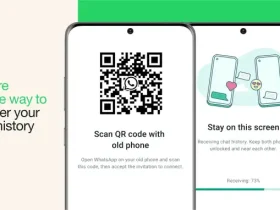
Meta’s instant messaging platform WhatsApp is introducing a new feature that will block the ability to take screenshots of your profile picture. With an aim to bolster user safety and security, WhatsApp has recently started rolling out this update that restricts unauthorised download, sharing and distribution of other user’s profile pictures.
According to WABetaInfo, WhatsApp is rolling out a feature to block screenshots of profile photos, and it’s available to some beta testers in the latest update for iOS version 24.12.10.74. However, some Android phones might also start getting this new feature as there are multiple reports from Android users who have informed that they are already not being able to take screenshots of profile pictures.
The ability to screenshot a profile picture compromises the control over one’s photo, potentially leading to its unauthorised distribution and misuse. This new move by WhatsApp offers an additional layer of privacy protection by preventing users from screenshotting and sharing profile photos without the owner’s consent. This reduces the chances for misuse of profile photos, ensuring that personal images are less likely to be shared or distributed.
It is to be noted that this feature is switched on by default, and you cannot manually turn on the feature or switch it off. Earlier, WhatsApp used to have the option of downloading and saving a user’s profile photo on the phone. But this feature was removed in 2019 in a bid to enhance user security and control over personal information. Now, with this new update of blocking the ability to screenshot profile pictures, WhatsApp seems to have taken user security a notch above, with better control over privacy.
In the recent years, WhatsApp has been trying hard to improve user security and privacy as there have been reports of data breach and unauthorised use of information from WhatsApp accounts. For instance, in the last few years, WhatsApp has launched several features strengthen privacy and security such as, password-protected folder to hide confidential chats, option to silence unknown callers, view-once messages for texts, audio and video, and most recently, support for passkeys that let you log in to the app using biometric methods such as facial recognition, fingerprint, or passcode.
















